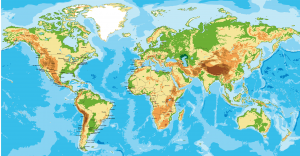Hi everyone, Irvand here.

As a foreigner living in another country, or someone who is planning to live in or visit another country, it is always a good thing to learn the language of that country especially if your purpose is to work. But many people find it difficult to learn a new language. Some struggle with remembering words, grammar, some have difficulty speaking or pronouncing words, some have difficulty with listening, and if you are planning to learn a language that uses it`s own written character(Chinese, Japanese, Russian, Korean,Thai, Arabic, etc) you might have difficulty with writing and reading as well.
I believe the key is you have to know what are you going to do with the language you are learning, why do you want to study it. For example, I studied Japanese because i want to continue my studies there, My friend is studying English because she wants to do business which includes many foreigners, and I am sure everyone has their own reasons why they want to study another language.
There are many ways to study depends on your purpose. If you want to make friends from other countries, you can take conversational courses, and just mingle with people from different countries in events and gatherings. If you plan on pursuing higher education or professional registrations you should study with a professional teacher for tests such as IELTS, JLPT, and many others.
In IELTS(International English Language Testing System), there are two categories which the test is divided into based on your purpose of learning the language, and i think this could apply to every other language as well. The two categories are “Academic” and “General”, Simply put, “Academic” is for those whose purpose of studying is to apply for higher education or professional registration in english speaking environment. It reflects some of the features of academic language and assesses whether you are ready to begin studying or training. “General” is for those who are going to English speaking countries for secondary education, work experience or training programs. It is also a requirement for migration to Australia, Canada, New Zealand and the UK. The test focuses on basic survival skills in broad social and workplace contexts.
https://www.ielts.org/about-the-test/two-types-of-ielts-test
it is quite different from JLPT(Japanese Language Proficiency Test)or日本語能力試験 which is divided into 5 categories depending on level of difficulty. N1, N2, N3, N4 and N5. The easiest level is N5 and the most difficult level is N1. To apply for higher education in Japan, usually it requires N2-N1 Level(unless English is the language used for the lectures), while for working it requires N3-N1(under the new regulation).
https://www.jlpt.jp/about/levelsummary.html
I personally still struggle with Japanese Kanji so i have trouble reading and writing documents. Although i can speak Japanese normally well, i find it difficult to read and write and even type in Japanese. even though i live in Japan 5 years now, i am still nervous about my writing. Did i use the right kanji? Did i use the right written grammar? what if i say or write something impolite? There are times i`ve been told that my writing is hard to understand or people don`t understand what i am saying.
So basically from what i learned so far about learning a new language is make sure you really know what your purpose is in learning the language. By knowing your purpose, you will know where to concentrate your studies. If it`s for higher education or professional work then study hard for written tests and certifications, but don`t forget to brush up on your social skills with the native speakers, you`ll need it for everyday life living abroad. If you want to have conversations and make local native friends or foreigner friends even visit other countries, you don`t really need to study for tests, just study a little bit of their language so you can also learn how the people from that country think in general, because language is not just words spoken and written, it is also an essential part of the peoples cultural heritage.
Learning a Language/ 言語を勉強する。
2020年03月30日




